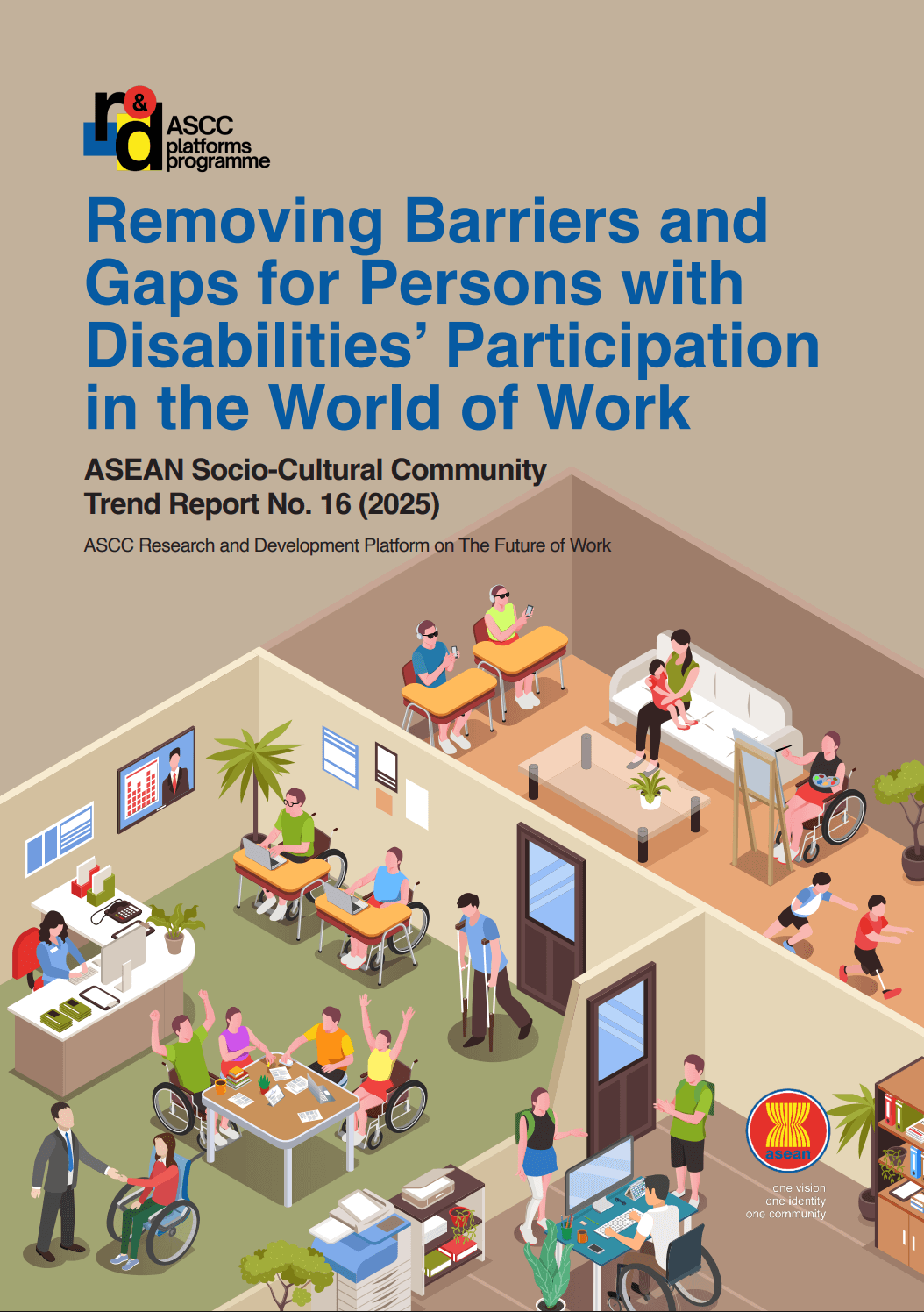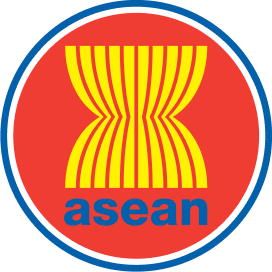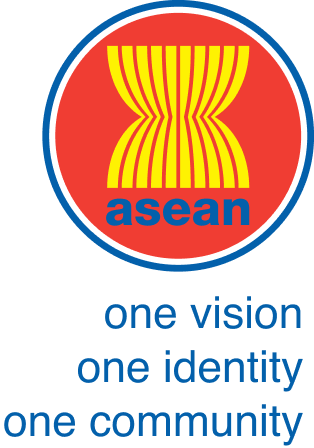

EXECUTIVE SUMMARY
The economies of ASEAN Member States (AMS) are undergoing transformative changes driven by three major megatrends–digitalisation, the greening of economies, and the accelerated shift of global value chains (GVC)–that have been accelerated by the COVID-19 pandemic. These developments have been reshaping economic operations and labour markets, as well as the lives of billions who contribute to or rely on them. Understanding and adapting to these megatrends is essential for sustaining growth and ensuring economic resilience in ASEAN.
Persons with disabilities (PWD) represent a critical demographic in the world of work requiring focused policy intervention and action. Despite their potential, PWD face significant barriers to employment, including limited access to education and skills training, inaccessible infrastructure, restricted job opportunities, and social stigma. These challenges result in lower employment rates and limited career opportunities compared to the general population. Employers also contribute to these barriers through their inadequate understanding of workplace accommodations, biases about PWD capabilities, and insufficient accountability systems. Addressing these obstacles is essential for enhancing workforce inclusion and enabling PWD to contribute meaningfully to the economy. As AMS economies evolve, it is important to consider how the megatrends have been impacting PWD employment–whether by creating further barriers or new opportunities for the inclusion of PWD. For example, digitalisation and the greening of the economy may result in the displacement of certain jobs and roles that PWD tend to be employed in, particularly lower-skilled, manual jobs. On the other hand, all three megatrends present vast opportunities for the emergence of new roles and jobs in the economy. If deliberate disability-inclusive policies and strategies are implemented, PWD could benefit from the opportunities that these transformations present, such as remote work and opportunities that eliminate physical barriers to work. However, in the absence of strategies and policies, PWD will be left further behind and employment inequalities risk becoming further entrenched.
To address these challenges and build a disabilityinclusive Future of Work in ASEAN, three approaches
are proposed:
1. Leveraging digital transformation and ICT to enable inclusive workplaces and create accessible opportunities.
2. Upskilling PWD with needed skills to thrive in emerging roles and industries.
3. Enhancing PWD access to education, employment resources, and technology to ensure their equitable participation in the evolving labour market.
Opportunity 1: Employers across private sector, public sector, and civil societycan foster inclusive workplaces by integrating digital transformation into their operations and adopting assistive technologies. Beyond employer initiatives, AMS can also play an important role by providing support and incentives, such as employer training, financial assistance, or incentive programmes.
Opportunity 2: To thrive in an evolving workforce, PWD require diverse skills tailored to dynamic economic demands, including soft skills, digital literacy skills, technical skills requisite for the digital and green economy, job-seeking skills, and entrepreneurship skills. Equipping PWD with these capabilities via quality and disability-inclusive education, vocational training, and skills development will enhance their employability and empower them to engage more fully in AMS economies.
Opportunity 3: To ensure the inclusion of PWD, access must be enhanced across education, employment, and ICT. Educational institutions should be encouraged to provide tailored accommodations for diverse disabilities and foster inclusive learning environments, while also making education and training more affordable. Addressing the digital divide is equally critical, requiring strategies to ensure PWD have access to assistive technologies and can also fully benefit from those technologies. Further, disability-inclusive practices must be integrated throughout an employee’s lifecycle from recruitment to performance management.
A multi-stakeholder approach is essential to address comprehensively the employment barriers faced by PWD. Multilateral and international organisations play a key role in establishing guidelines, while national governments are responsible for enacting regulations, building inclusive infrastructure, and enforcing non-discrimination policies. Employers must enhance their workplace practices to prioritise disability inclusion, and civil society organisations can contribute by expanding opportunities and support systems for PWD. Collaborative efforts across these stakeholders are crucial to creating an equitable and inclusive future of work for PWD.







